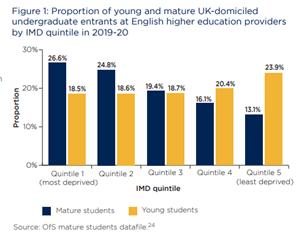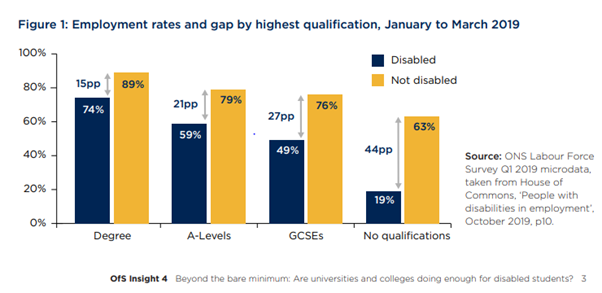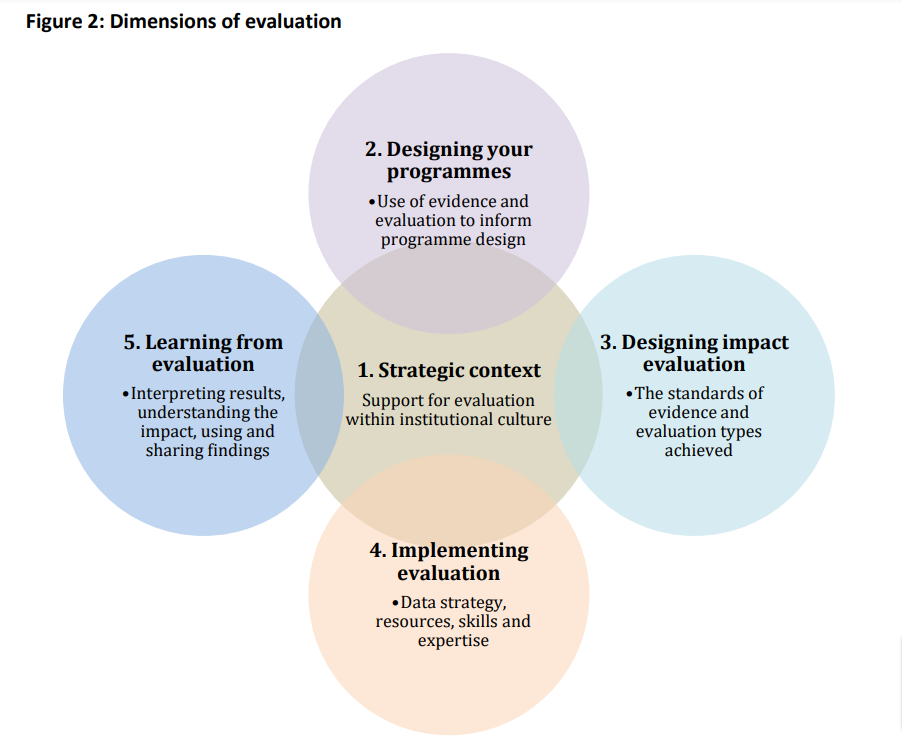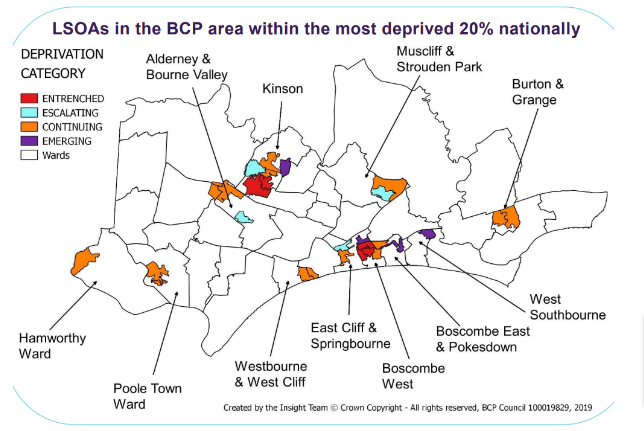BRITISH SCHOOL OF MARKETING INTERNATIONAL
ACCESS AND PARTICIPATION PLAN
| October 2025 | Review date: October 2026 |
BRITISH SCHOOL OF MARKETING INTERNATIONAL
| October 2025 | Review date: October 2026 |
Contents:
| 1. Introduction |
2. Assessment of performance
|
3. Strategic aims and objectives
|
4. Strategic measures
|
| 5. Provision of information to students |
1.Introduction
An access and participation plan highlights higher education providers’ efforts to improve the underrepresented groups’ opportunity to access, progress, and succeed in their academic and vocational studies. This APP is an explanation of how the British School and Marketing International (BSMI) continues to support students to succeed and explains its fees and access measures to allow students to reach their desired aims.
The British School of Marketing International (BSMI) is a business and marketing-focused college that was established in 2014. Since then, it has developed into a pathway for international students, offering pathway courses designed to enable students to progress into the first, second, or final year of university courses.
As an International Business College, BSMI serves as a solid basis for each student’s future advancement at university or as highly skilled professionals, fully prepared for their chosen job in a rapidly changing, global, digital economy. BSMI has assisted many students in advancing to their planned undergraduate degrees.
Students who successfully complete BSMI Diploma Courses (accredited by ATHE) can progress students to 23 Universities for which more information can be found at the following link: https://britishschoolofmarketing.com/our-partner-universities/
We are currently running the ATHE Level 3 in Business Management for international students. However, following the completion of our registration with OFS, the courses from Level 4 onwards will be available to national and international students with further progression opportunities:
On the other hand, we also provide students with BSMI qualifications consisting of Level 3, Level 4, and Level 5 progressing them to both Bournemouth and De Montfort Universities. The BSMI qualifications are 6 months long providing faster access to the two universities mentioned above. The BSMI qualifications that are both internally assessed and moderated are as follows:
The main objective in offering both ATHE and BSMI qualifications to international students throughout the same academic year is to provide students who aren’t fully competent in English Language skills with six-month-long of Support to help them with their transition to university promptly and fully equipped both linguistically and academically.
Like any educational organisation, BSMI is here to help students succeed, and this intent is clearly defined in the school’s purpose, vision, and mission statements:
Purpose: to assist national and international students with their learning, progression to higher education degrees and participation in the local and wider community.
Vision: to give a chance to national and international students to succeed with their academic, language and career objectives.
Mission: Is to provide career-focused learning in the interests of individuals, the community, and the UK economy.
2. Assessment and performance
As it is the school’s first Access and Participation Plan, BSMI performance and assessment data cannot be found on the OFS website. However, we monitor our performance continuously by assessing key performance indicators such as students’ achievement, attendance rates, graduation and progression rates, teacher satisfaction and governance.
We have always tried to work hard to help students to achieve merit and distinction to help them settle comfortably in British universities. Despite the lack of Attainments data on OFS database, BSMI ensures that its students can access their desired course and continue to monitor their progression till they achieve their goals.
To officialise progression activity, the college has been working on the development of a bespoke IT system to monitor student progression and assist tutors with academic administration in order to both implement this Access and Participation Plan as well as develop and deliver the Strategic Objectives required for Higher Education.
2.1 Higher education access through participation, household income, or socioeconomic status
BSMI has been mainly recruiting students from overseas therefore there is no recorded local data to show; yet, we have conducted research concerning higher education participation in relation to household income and socioeconomic status to have statistics that assist our understanding of the environment, and consequently reflect our intent to deliver higher education to local students.
According to BPC, which operates in the same local area published “An examination of the 3-year trend for POLAR4 data which reveals that access to higher education among POLAR4 quintile 1 has increased considerably since 2019, whereas access to higher education among POLAR4 quintile 2 has increased somewhat. In 2019-20, the average difference between POLAR4 quintile 5 and quintile 1 for under 21 students was 17.7% across all English HE providers.” (BPC)
The above statement indicates that access to higher education among POLAR4 quintile 1 (quantile one shows the lowest participation rate) has increased considerably since 2019, whereas access to higher education among POLAR4 quintile 2 has increased somewhat. In 2019-20, the average difference between POLAR4 quintile 5 (5 shows the highest rate of participation) and quintile 1 for under 21 students was 17.7% across all English HE providers.
Given this increase in participation and by becoming an OFS accredited HE provider, BSMI will help these students to have the opportunity to access HE and subsequently achieve their dreams.
2.2 Black, Asian and all minority ethnic students
Our vision is to make education accessible to all the ethnic minority groups living in the local areas. Due to our commitment to offer equal opportunities to national students, we have reviewed the data available on the Black, Asian minority ethnic groups and noted the percentage of BAME students on HE courses has reduced by 1.5% since 2015. Demographically, the local area from where most of our students are drawn is 88.4% white British and 5.8% BAME (Gov.uk)
In line with BSMI’s strong belief of equal opportunity, the school will work hard to change the above statistics and help BAME students to access HE. The continuation rate of BAME is not promising as the data for 2017/18 showed a 3.6% gap in continuation rate (Gov.uk). Internally generated data ‘Vision reports 2020-2021’ indicate that BAME students now have 1% higher continuation rates than non-BAME students. We will not therefore set any targets relating to BAME students but will carefully monitor rates to ensure that no gaps arise.
2.3 Mature students
“Around a fifth of the adult population does not have upper secondary education; less than half have tertiary education. In 2018, 1.3 percent of the UK population aged over 25 were enrolled in a bachelor’s degree or higher qualification – lower than international competitors such as Australia (3.8 percent) and the USA (2.1 percent). Many UK businesses report a lack of skilled graduate employees” (OFS, Insight, May 2021)
The low HE achievement by mature students could be explained as a result of a lack of financial means. Mature students face similar financial problems to young students, demotivating them to pursue their studies at university. As an example, and looking at the Index of Multiple Deprivation (IMD), the percentage of mature students living in a deprived area is (26.6%) which is double that of young students (13.1%).

Based on the above statistics, and as an established pathway provider for mainly international students, BSMI’s objective is to extend its service to local mature students and help them access higher education by assisting them to access the right course and receive the financial help they might be entitled to. These students prefer to continue their education via pathway providers due to various reasons such as the anticipation of the age gap between the university students and themselves which create a greater level of anxiety for them.
2.4 Disabled students
Students’ disabilities may include Dyslexia or attention deficit, mental health such as anxiety, physical disabilities affecting mobility, sensory impairments such as deafness, etc. The Office for Students Insight reports that “13.2% of students attending university in 2017 had one or more disability.”
BSMI is experienced in dealing with students with different disabilities such as health issues, speech, and hearing difficulties. In one of the cases, the college managed to find the solution by seeking the help of an assistant, specializing in British Sign Language. As a result, students were able to complete, successfully, their Level 4 Business.

Looking at the above graph, the percentage of the disabled workforce with a degree is higher (74%), reducing the gap between disabled and not disabled to only (15%), while the gap is a lot wider for those in the absence of qualification group. This suggests that the access to the job market for disabled candidates can be easier when they hold a degree. For this reason, BSMI will participate in helping and assisting disabled students to access means of progression and obtain their qualifications to secure their chosen jobs.
https://www.officeforstudents.org.uk/media/1a263fd6-b20a-4ac7-b268-0bbaa0c153a2/beyond-the-bare-minimum-are-universities-and-colleges-doing-enough-for-disabled-students.pdf
3.Strategic aims and objectives
BSMI is a further education college providing international students with pathway language and professional courses. Our aim is to provide higher education to national students living in the UK as well as international students. We are inclusive and ambitious to become one of the major players specialising in Business Studies to transform the lives of individuals and the community in the UK with the help of our university partners we aspire to help students to attain the right skills and the right guidance to guarantee their success both at university and life.
To deliver excellent service, the school continuously reviews its performance and is always trying ways to make the education experience for students a better one like using tutorials to create a space where students can engage more actively with the course content and to provide a real-time, academically centered intervention with and for students.
As part of delivering excellent service, the school has put in place measures and objectives to attain like:
 Source: https://www.officeforstudents.org.uk/media/8963d318-cb0c-4d46-9359-18304bfb7588/how-to-use-the-self-assessment-tool-revised-april-2019.pdf
Source: https://www.officeforstudents.org.uk/media/8963d318-cb0c-4d46-9359-18304bfb7588/how-to-use-the-self-assessment-tool-revised-april-2019.pdf
Ex. Creating a new role: Head of Higher Education Quality:
We will use this role to deliver excellent service and review what has been learned from the activities detailed in the plan and how any processes should be amended and adjusted to ensure the objectives are realised.
By fulfilling this role, we will be able to review what has been learned from the activities detailed in the plan, as well as how any processes need to be amended or adjusted to ensure that the objectives are successfully met.
The role will also have a strong focus on student consultation to ensure that students are part of the overall process and contribute to the overall success of the plan through feedback and continuous improvement.
The school will use the three types of evaluation that generates different kinds of evidence: narrative, empirical inquiry and consideration of causal claims. This simple tool can help identify gaps and areas of improvement.
https://www.officeforstudents.org.uk/for-providers/equality-of-opportunity/evaluation/standards-of-evidence-and-evaluation-self-assessment-tool/
3.1 Strategic Aims:
Access
In terms of strategic goals, the College is dedicated to ensure that all learners, regardless of their backgrounds, attain their full potential. We will do this by fostering an inclusive learning environment with great teaching and a high percentage of face-to-face and small-group interaction.
Aim: to provide the best opportunities to enrol and progress in HE, and to effectively collaborate with local and regional stakeholders to raise aspirations for those from underrepresented areas.
Objectives:
Success
Progression
In spite of the lack of data or clear gaps to measure, BSMI is working hard to improve how we collect and analyse data concerning student outcomes, so we can better understand and support our diverse and dynamic student population.
3.2 Target groups:
Data show that POLAR4 Quintile 1 and 2 students have better access and are more likely to finish their studies than students from Quintile 3, 4, or 5. As a result, we will continuously monitor data to reduce the existing gap.
BSMI is already working with ethnically mixed-nature students as it deals with international students daily. Even in the absence of reliable data, BSMI is committed to monitoring the situation and gathering as much data as possible to avoid any widening of gaps between groups.
4. Strategic measures
4.1 Careers strategy:
The school aims to provide a high-quality, impartial, and accessible Careers Education, Information, Advice, and Guidance service (CEIAG) to prospective current and former students to provide them with the right advice and direct them toward success. This will ensure that we are raising aspirations and confidence to ensure our students are work-ready and equipped with the skills required to make a positive contribution to employers and to the local economy.
In accordance with the guidelines of the Equality Act 2010, the College gives priority to an integrated approach to learning, teaching, and assessment as per the guidelines of the Equality Act 2010. The Access and Engagement Plan is closely coordinated with the Equity and Diversity Strategy.
The following are some of our strategic priorities which are in line with the Access and Engagement Program’s overarching goals, aiming to enable all students, regardless of their backgrounds, to achieve their full potential:
The Equality and Diversity strategy has identified specific priorities that will directly contribute to the goal of increasing access and improving attainment among the low participation groups mentioned in section 2.2:
4.2 Local student:
Students from IMD (Index of Multiple Deprivation) quintiles 1 and 2 have had limited exposure to Higher Education (HE) compared to their counterparts from quintiles 4 and 5. To address this disparity and boost their confidence in making informed choices, it is essential to actively involve these students in interactions with Higher Education Institutions (HEIs), graduates, lecturers, and Guest speakers to help students make informed decisions.
By creating such forums and opportunities for engagement, students in need of support to access various services will find a welcoming space. Additionally, they can identify relevant career and course opportunities, which will ultimately empower them to make better-informed decisions about their educational and career paths. Through these interactions and exposure to the possibilities of Higher Education, students from less privileged backgrounds will be better equipped to pursue their academic and professional aspirations.
 “Deprivation in the BCP area is polarised in a small number of highly deprived areas. The map below shows LSOAs that fall within the most deprived 20% nationally. They have been split into 4 categories of deprivation: Entrenched, Escalating, Continuing and Emerging.”
“Deprivation in the BCP area is polarised in a small number of highly deprived areas. The map below shows LSOAs that fall within the most deprived 20% nationally. They have been split into 4 categories of deprivation: Entrenched, Escalating, Continuing and Emerging.”
https://democracy.bcpcouncil.gov.uk/documents/s14052/Appendix%20C.pdf
4.3 Key Strategic Measure: Student progression – Employability and skills development
By focusing on the connection between their academic pursuits and their desired career paths, students are finding a renewed sense of purpose and determination in their studies. This emphasis on career aspirations has influenced our approach to career guidance, ensuring that students are well-informed about various career opportunities and the academic pathways that lead to them.
As a result of this cultural shift, students are more motivated and engaged. By aligning their academic goals with their career ambitions, students are better able to see the relevance and value of their studies, leading to increased dedication and effort in achieving high academic grades.
4.4 Student consultation
The school gives importance to students’ involvement as part of the quality process, which ensures the participation of different elements such as staff, students, HE partners, and other applicable stakeholders. We believe our students are a crucial part in securing excellence in the school performance, therefore, the management always engages with its students across various levels of governance.
Because of the importance of students’ involvement, BSMI is currently working on training some students to be ambassadors to promote and secure Equality, Diversity, and Inclusion.
4.5 Evaluation strategy
It can give everyone an understanding of where the College is going and what actions will be taken to ensure we get there. Steps like:
4.6 Monitoring progress against delivery of the plan
Monitoring progress against delivery of the plan is the responsibility of the school’s managing Director/Principal/DoS
5. Provision of information to students
At BSMI, we place great emphasis on providing our students with excellent information, advice, and guidance throughout their educational journey. We take the guidelines set by the Competition & Markets Authority (CMA) seriously, ensuring that all details regarding fees and financial support are accurate, easily accessible, transparent, and provided promptly.
BSMI website includes information covering all policies and procedures such as:
Our strong collaboration with our university partners ensures that the information we offer during the application process is always current and reliable. We believe that transparency is crucial, which is why we furnish applicants with comprehensive and written explanations regarding the course content, structure, fees, and associated costs.
To demonstrate our commitment to openness, we make the school’s Tuition Fee Payment Policy easily accessible on our website, showcasing our adherence to relevant regulations.